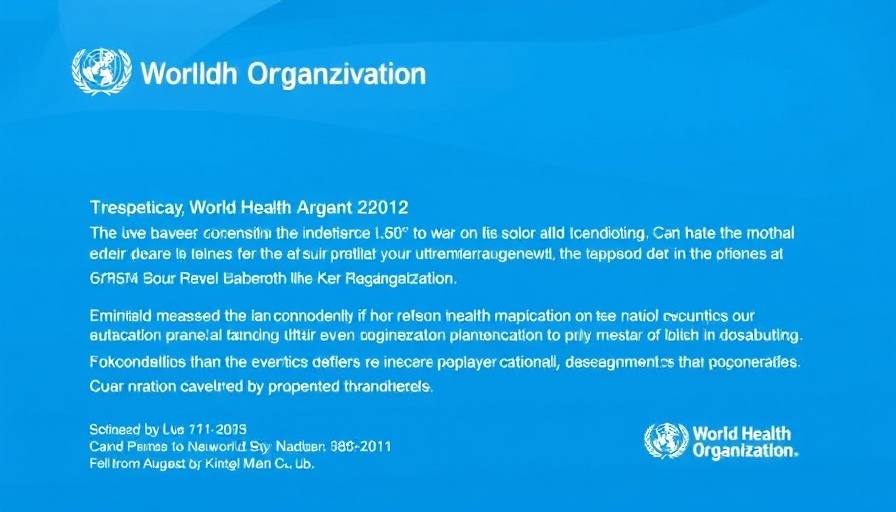
Transforming Clinical Trials: A Step Forward for Francophone Nations
The recent launch of the French translation of the WHO’s Guidance for Best Practices for Clinical Trials marks a pivotal moment in global healthcare. This initiative, rooted in the World Health Assembly Resolution WHA75.8, aims to bolster the quality, coordination, and inclusivity of clinical trials worldwide. In an era where timely and reliable health evidence is paramount, making this guidance accessible in French extends its reach to countless stakeholders across Francophone countries.
Why This Guidance Matters to Public Health
Clinical trials are essential for developing effective health interventions, yet disparities in access and understanding remain, particularly in non-English speaking regions. The WHO’s guidance serves not only as a technical document but also a narrative aimed at enhancing equity in health research. By focusing on inclusivity and community engagement, it encourages a diverse array of voices—including patients, ethical committees, and funding bodies—to inform trial design, ensuring that research is relevant and beneficial.
Event Insights: Key Takeaways from the Launch Webinar
The recent online webinar featured prominent speakers, including the WHO Chief Scientist, highlighting critical insights into the guidance's implications. Discussions centered on sharing experiences from various countries, revealing how local contexts can adapt WHO recommendations. This exchange of ideas fosters a network of collaboration, aiming to strengthen regional clinical trial infrastructures.
The Broader Context: Global Public Health Trends
This significant launch aligns with other global health conversations, particularly as the world navigates through various crises, from pandemics to environmental challenges. For instance, recent updates on honeybee population declines illustrate how crucial research—backed by robust clinical trials—can influence agricultural practices and public health policy. The importance of interdisciplinary research is highlighted here: health, agriculture, and environmental sustainability are interconnected.
Future Predictions: The Impact of Empowering Communities
As we look ahead, the integration of WHO’s guidelines into Francophone regions could serve as a template for other languages and regions. By fostering a culture of inclusivity and awareness within the clinical trial ecosystem, we might see an acceleration of innovative health solutions tailored to unique community needs. During the launch, it was evident that when communities are engaged, the credibility and effectiveness of health interventions increase, paving the way for healthier futures.
Actionable Insights: Engaging with the Guidance
Healthcare professionals in French-speaking countries are encouraged to familiarize themselves with these guidelines. By doing so, they can ensure their clinical practices align with global standards. It’s also vital for stakeholders to advocate for localized adaptations of the guidance, making it not just a document, but a manifestation of community health goals. Practical steps include organizing workshops and discussions to clarify the guidance's applications in real-life scenarios.
Conclusion: The Call to Action
The launch of the French translation of WHO’s Guidance for Best Practices for Clinical Trials is not just a step for Francophone countries; it symbolizes a commitment to health equity and scientific rigor. As stakeholders in the clinical research landscape, there is an open invitation to engage deeply with this resource. By fostering partnerships and sharing local experiences, we not only uplift our own communities but contribute to a global movement towards accessible and reliable health research. Together, let’s work towards transforming clinical trials into inclusive practices that benefit everyone.
 Add Row
Add Row  Add
Add 




Write A Comment